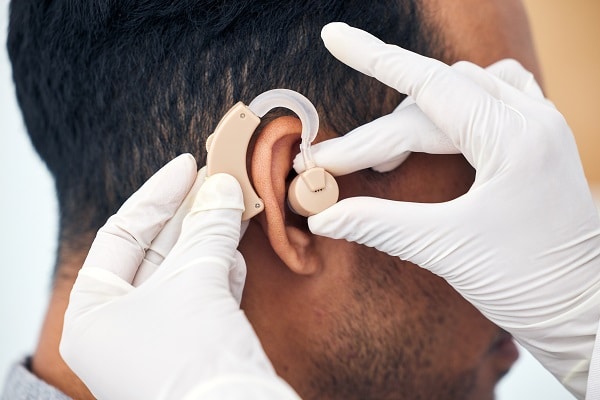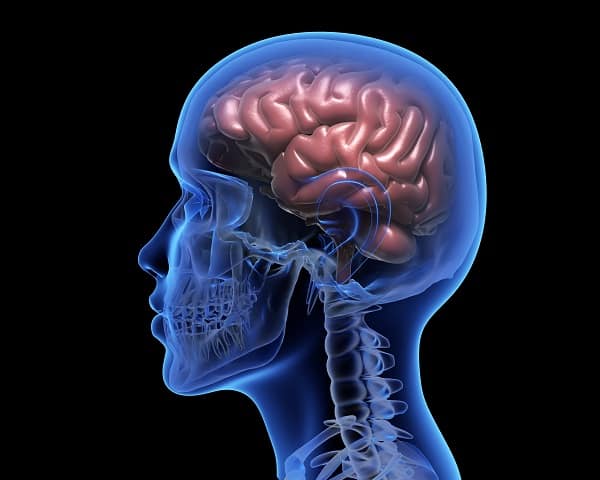Hearing loss, a prevalent health concern worldwide, affects millions of individuals across various age groups. While it’s commonly perceived as a mere inconvenience, its implications extend beyond the auditory system, impacting psychological well-being, physical health, cognitive abilities, and socioeconomic status. This article delves into the profound and often overlooked consequences of hearing loss, highlighting its extensive reach on overall health. By understanding these impacts, individuals, healthcare providers, and policymakers can better address the multifaceted challenges of hearing loss and improve the quality of life for those affected.
Contents
Psychological Impact of Hearing Loss

The psychological repercussions of hearing loss are profound and multifaceted. Individuals with hearing impairment often face social isolation, as difficulties in communication can lead to withdrawal from social interactions. This isolation can escalate into more severe mental health issues, including depression and anxiety, which are notably higher in those with hearing loss compared to the general population. Additionally, the constant strain of trying to hear can lead to cognitive overload, where the brain becomes tired from deciphering sounds and speech, further exacerbating mental stress and fatigue.
Moreover, hearing loss often goes unrecognized as a contributor to psychological distress, leaving many without the necessary support and treatment. The lack of awareness and understanding about the psychological impact of hearing loss hinders individual well-being and affects relationships and daily functioning. As such, there’s a pressing need for increased awareness and targeted mental health support for those experiencing hearing loss, ensuring they receive comprehensive care that addresses both auditory and psychological needs.
Communication Barriers and Relationships

Hearing loss profoundly impacts communication, a fundamental aspect of human interaction. This impairment can create significant barriers in personal and professional relationships, leading to misunderstandings, frustration, and disconnection. In the workplace, these challenges can result in missed opportunities, decreased job performance, and even job loss, further affecting the individual’s socioeconomic status and self-esteem.
Hearing loss can create a divide in personal relationships, as family members and friends may struggle to adapt to the new communication needs. This can lead to feelings of isolation and loneliness for the person with hearing loss, as they find it increasingly difficult to engage in meaningful conversations and maintain close relationships. Effective communication strategies, such as using hearing aids, learning lip-reading, or employing sign language, can help bridge these gaps. However, wider understanding and accommodation in personal and societal contexts is essential to mitigate these barriers.
Impact on Physical Health

The physical health implications of hearing loss are often underestimated. Research suggests a correlation between hearing impairment and an increased risk of falls and accidents. This is primarily due to the role hearing plays in maintaining balance and spatial awareness. Furthermore, growing evidence links hearing loss with cardiovascular problems, as the inner ear is sensitive to blood flow changes, making it a potential early indicator of cardiovascular issues.
Sleep disturbances are another concern, as hearing loss can disrupt sleep patterns, leading to insomnia and daytime fatigue. This disruption not only affects physical health but also affects mental and emotional well-being. Thus, addressing hearing loss is crucial for the sake of auditory health and maintaining overall physical health and well-being.
Cognitive Decline and Dementia

Emerging research highlights a significant link between hearing loss and cognitive decline, including an increased risk of dementia. Theories suggest that the extra cognitive load required to process sound in the presence of hearing loss may contribute to cognitive strain, potentially accelerating cognitive decline. The social isolation resulting from hearing loss can further exacerbate this decline, as social interaction is crucial for maintaining cognitive health.
While the exact mechanisms linking hearing loss to cognitive decline are still being explored, the evidence underscores the importance of early detection and intervention. Utilizing hearing aids and other assistive technologies can help mitigate these risks, emphasizing the need for prompt and effective management of hearing impairment to preserve cognitive function and overall brain health.
Emotional Toll of Hearing Loss

The emotional impact of hearing loss is as significant as its physical and psychological effects. Individuals with hearing impairment often experience a wide range of emotions, including frustration, anger, and grief over the loss of their hearing ability. These emotions can be overwhelming, particularly in the initial stages of diagnosis or as the condition progresses.
Moreover, the chronic nature of hearing loss can lead to long-term emotional strain, affecting an individual’s outlook on life and overall happiness. The journey of coping with hearing loss is unique for each person. Still, it often involves navigating a complex mix of emotions and adapting to new ways of interacting with the world. Support from family, friends, and professionals and effective coping strategies can be pivotal in managing these emotional challenges.
Importance of Early Detection and Intervention

Early detection and intervention of hearing loss are critical in mitigating its adverse effects. Early diagnosis allows for timely management, significantly improving the quality of life for individuals with hearing loss. This includes not only the use of hearing aids and other assistive devices but also access to rehabilitation services, which can teach coping and communication strategies.
Intervention at an early stage can also help in preventing some of the secondary effects of hearing loss, such as social isolation, cognitive decline, and mental health issues. Regular hearing check-ups, particularly for high-risk groups like the elderly and those exposed to loud noises, ensure early detection and effective management of hearing loss.

Navigating the healthcare system for hearing loss treatment can be challenging. It often involves a multidisciplinary approach, including audiologists, otolaryngologists, and hearing therapists. Understanding the available healthcare options and the pathways to accessing these services is vital for effectively managing hearing loss.
Support systems play a crucial role in the lives of those with hearing loss. This includes medical and rehabilitation support and emotional and social support. Community resources, support groups, and online forums can provide valuable assistance and a sense of belonging to individuals with hearing loss, helping them navigate the challenges and connect with others experiencing similar issues.
The Bottom Line
Hearing loss, often underestimated, has far-reaching implications affecting psychological, physical, and cognitive health and socioeconomic status. The journey through hearing loss is complex and multifaceted, necessitating a comprehensive approach to management that encompasses early detection, effective intervention, and robust support systems. Technological advancements and advocacy play crucial roles in enhancing the lives of those affected. By shedding light on these diverse impacts and advocating for comprehensive care and support, we can improve the lives of millions experiencing hearing loss, underscoring the need for heightened awareness and proactive management of this prevalent condition.


